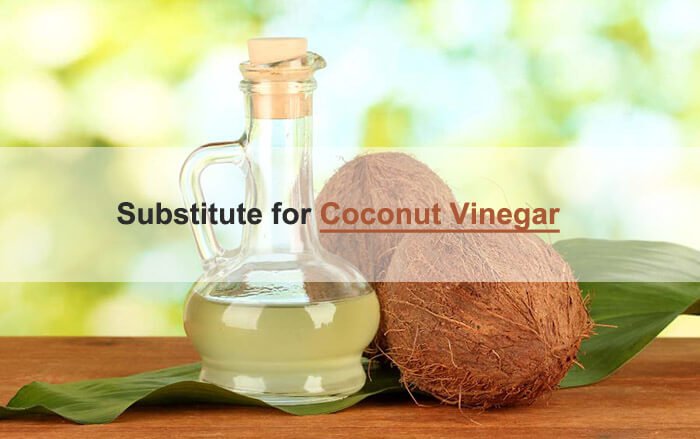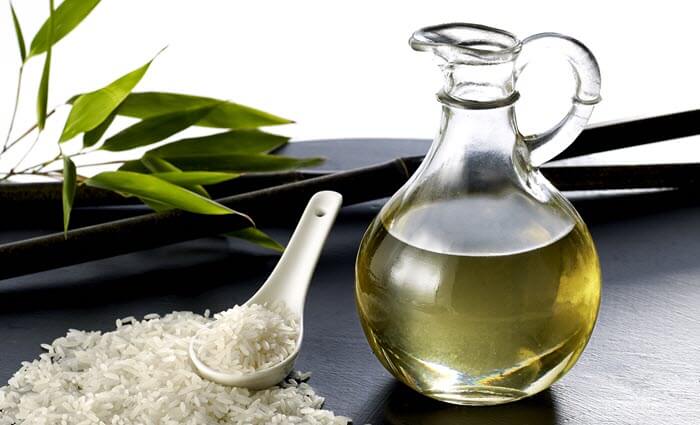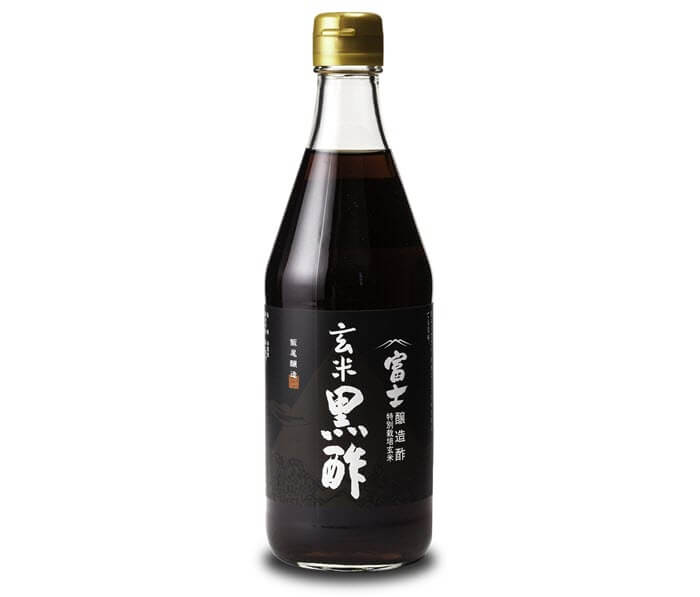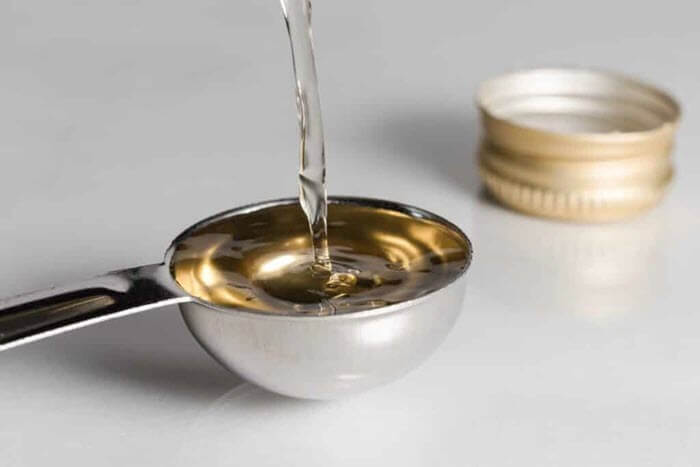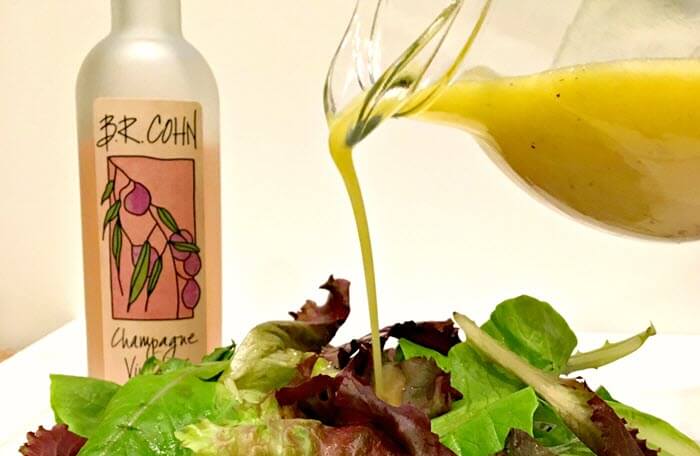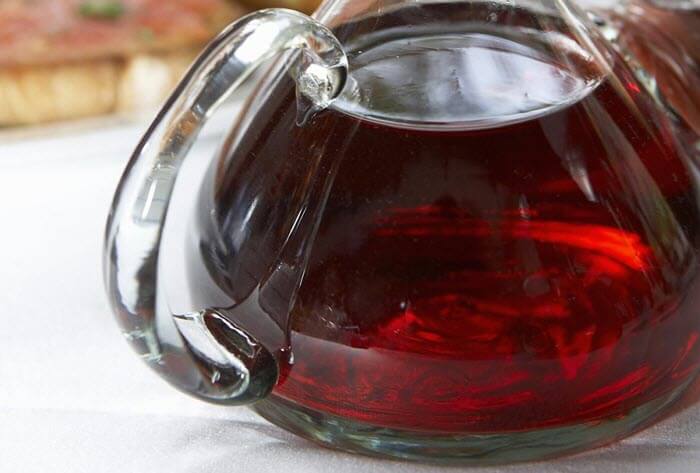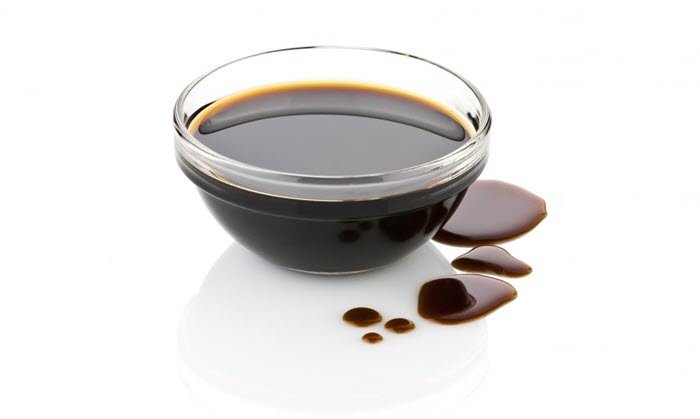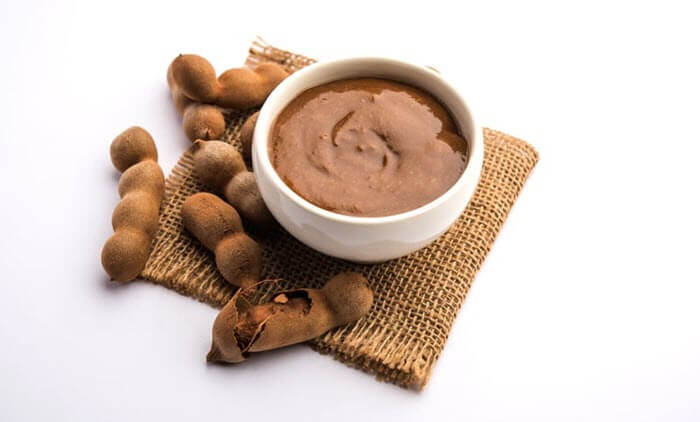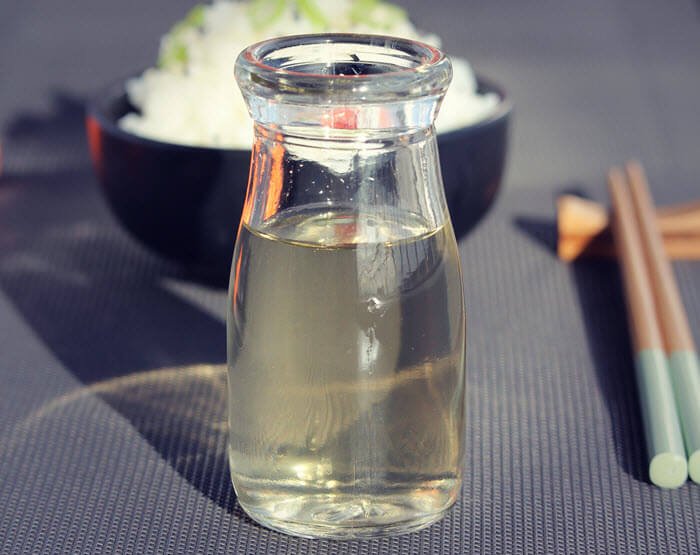Have you run out of coconut vinegar, or perhaps you can’t find it at your local grocery store?
What can you substitute for coconut vinegar?
Here I’m going to show you the top 15 coconut vinegar substitutes for your recipe.
Coconut vinegar has quietly entered the scene in the West, becoming increasingly popular among chefs, home cooks, and “foodies.” However, it’s been a long-time staple and a favorite ingredient in Indian and Southeast Asian cuisine.
The sap of coconut blossoms is fermented for about eight to 12 months, naturally forming vinegar. Coconut vinegar has a whitish, cloudy appearance and a tangy, round, subtly nutty taste that is milder than apple cider vinegar.
If you have run out of it, you can use several alternatives below to add an extra pop to your marinade, soup, or sauce.
Table Of Contents
Top 15 Coconut Vinegar Substitutes
1. Apple Cider Vinegar
Can you substitute apple cider vinegar for coconut vinegar? The short answer – Yes!
Apple cider vinegar is essentially fermented apples. It provides the closest taste to coconut vinegar when used in various recipes. It has a tangy, tart-like flavor and brings some of the apple’s sweetness, having a subtle dry taste.
It can be a great alternative in any recipe that lists coconut vinegar as an ingredient, including stews, marinades, stir-fries, dressings, chutneys, and beverages.
You can also use apple cider vinegar when making pickles, although it may darken light-colored vegetables and fruits. Be sure to use apple cider vinegar with a five percent acidity level.
2. White Rice Vinegar
Rice vinegar is frequently used in Asian cuisine and has a somewhat sweet, crisp, mild flavor that makes it a popular substitute for coconut vinegar.
Many like to add rice vinegar to brine liquids since it doesn’t mask the taste of other ingredients. (Brining is a cooking method where you submerge a cut of meat into liquid, such as water and salt, seasoning the meat from the inside out and adding flavor.)
The best way to use rice vinegar is in recipes that use other Asian flavors, such as soy sauce, ginger, and sesame oil. There are several different types of rice vinegar that you may wish to consider when you need a coconut vinegar substitute.
Slightly more acidic than coconut vinegar, white rice vinegar adds a crispy but mild flavor to pickling, stir-fries, dipping sauces, and sweet and sour recipes.
3. Red Rice Vinegar
Red rice vinegar has a tangier taste than coconut vinegar and can be used as an ideal replacement. It’s frequently added to provide additional flavor to soups, seafood, or noodles.
4. Black Rice Vinegar
Black rice vinegar is dark and sweet with a deep, smoky flavor. It’s often included in stir-fries, sweet and sour recipes, soups, stews, salads, sushi rice, slaws, dressings, and vegetable seasonings.
It can be served as a good coconut vinegar substitute.
5. Shanxi Vinegar
An aged rice vinegar, Shanxi vinegar, is made from different grains, including rice, barley, bran, or sorghum mixed with peas. It is dark reddish and has a subtly sweet, sour, umami flavor.
Shanxi vinegar is often added to noodles to enhance flavoring and can be used as a coconut vinegar replacement in my recipes.
6. White Wine Vinegar
White wine vinegar isn’t white vinegar, it has a neutral, acidic taste and light, delicate, slightly fruity white wine flavor.
If other potential alternatives seem too robust in flavor, white wine vinegar is usually a good option.
You can use it in hollandaise sauces, and it also provides an added depth of flavor to poultry, pork, and seafood dishes, helping to balance out the flavor of sweet ingredients.
7. Champagne Vinegar
Champagne vinegar is fermented champagne. It has a mildly sweet, delicate, and subtly sharp, tangy flavor with a fruity, slightly vanilla flavor.
Champagne vinegar can add an acidic, sweet flavor to your dish that nicely balances other flavors.
Many use champagne vinegar unheated, drizzling it on vegetables or salads.
Further reading: 15 Substitutes for Champagne Vinegar
8. Red Wine Vinegar
Red wine vinegar has a tangy, punchy taste that adds character to vinaigrettes, marinades, and Italian salad dressings.
It provides a hot, somewhat smoky, robust grape taste and adds boldness when pickling vegetables or marinating red meat.
In addition, red wine vinegar can often add robust flavors to sauces, dips, and barbecue sauces.
9. Balsamic Vinegar
Balsamic vinegar is an aged grape vinegar, where the aging process darkens and thickens the consistency of the vinegar until it has a deep, rich flavor.
It’s a popular coconut vinegar alternative due to its subtly sweet, tart taste. With its molasses- and caramel-like properties, it also has a slight aftertaste of fruit.
You can add drops of balsamic vinegar to your soup or cocktail, include it in salad dressings, or use it to marinade braised dishes or meats.
Note that you may need to add a bit more balsamic vinegar to your recipes when using it as a coconut vinegar substitute to obtain the desired taste.
10. Malt Vinegar
If coconut vinegar’s sweetness is too much for you, you may prefer malt vinegar, which comes from the same malted barley grains used to make beer.
Malt vinegar’s tart flavor is balanced with its complex lemony, nutty, toasty, and subtly caramel taste.
There are various types of malt vinegar:
- Light malt vinegar is usually a pale amber color and relatively mild in flavor. People frequently use it in salad dressings, marinades, sauces, and dishes that need a softer yet still tangy malt flavor.
- Distilled malt vinegar comes from fermenting a barley-based liquid. Bacteria break down the alcohol to make acetic acid, resulting in a rawish brown malt vinegar that then gets distilled to remove the color. Distilled malt vinegar has a sharper taste and is nearly colorless. It’s often an ingredient in marinades and sauces.
- Dark malt vinegar includes added barley or caramel and has a stronger flavor. It’s often used on fish and chips or french fries.
All the above types can be used to substitute coconut vinegar.
Further reading: 13 Best Malt Vinegar Substitutes
11. Lemon Juice
We know that this one may come as a surprise. But if you don’t react well to fermented foods or don’t care for the taste of coconut vinegar, you might prefer the tanginess of lemon juice without the sweetness.
You can use lemon juice to add flavor to dressings, sauces, dips, and marinades. Be sure to use a small portion of lemon juice as a substitute for coconut vinegar so that your dish isn’t too sour.
12. Tamarind Paste
Tamarind paste comes from a dark, sour, sticky fruit that grows as a pod on tamarind trees. This is another good alternative if you don’t like the taste of coconut vinegar.
It has a molasses-like texture and tastes somewhat sour and tangy with a slight hint of citrus, caramel, and smokiness, resulting in a subtly sweet flavor. People use tamarind paste in cooked dishes and sauces due to its thick consistency.
Tamarind paste is a common ingredient in Thai, Indian, Latin, Vietnamese, and Caribbean cuisine. For example, many Thai and Indian curries include tamarind paste.
Although used primarily for savory recipes, tamarind paste is also in some desserts. It’s also an essential ingredient in Worcestershire sauce.
13. Sushi Vinegar
Sushi vinegar is a good option if you’d like to use a spicy alternative to coconut vinegar.
It is seasoned rice vinegar with savory and spicy flavors that also carry a subtle touch of sweetness and sourness.
It’s made using fermented rice as a base and then adding salt, sugar, and various seasonings and spices, resulting in a richer, more robust taste. It’s primarily used during sushi preparation to help keep the fresh ingredients from spoiling.
14. Wine
Although wine won’t give you the same results as the other alternatives, it can provide a nice extra flavor to sauces and some recipes.
Try to use a fortified wine if possible, although regular wine is an appropriate alternative.
You can use any type of wine, but red wine may work best as a coconut vinegar substitute. Regardless, any wine will add complexity to the flavor of your dish.
15. Homemade Coconut Vinegar
To make coconut vinegar at home, you’ll need just a few simple ingredients and a healthy dose of patience.
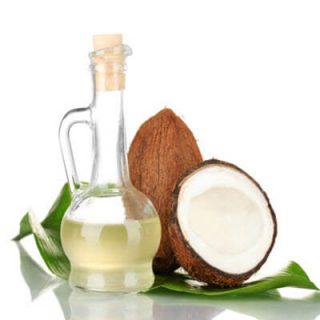
Homemade Coconut Vinegar
The simplest homemade coconut vinegar recipe.
Ingredients
- 12.5 cups of coconut water
- 2 and 1 quarter cups of white sugar
- 1 quarter teaspoon of yeast
- 4 cups of vinegar mother
Instructions
- You'll need to strain the coconut water, mix in the sugar, and heat the mixture, stirring the liquid until the sugar dissolves.
- Let the mixture cool, add the yeast, and pour the mixture into a bottle.
- Then cover the bottle while allowing some access to air.
- Place the mixture in a dark, cool place for about a week until liquid alcohol develops.
- Last, add the vinegar mother, and allow it to sit between four to 12 weeks.
Notes
Vinegar mother is a gelatinous mixture made of cellulose and acetic acid bacteria. It develops on fermenting alcohol liquids and turns alcohol into acetic acid following exposure to oxygen in the air.
If you don't want to make the vinegar mother yourself, you can purchase it at a health-food or wine store.
Nutrition Information:
Yield: 8 Serving Size: 1Amount Per Serving: Calories: 337Total Fat: 1gSaturated Fat: 1gTrans Fat: 0gUnsaturated Fat: 0gCholesterol: 0mgSodium: 397mgCarbohydrates: 77gFiber: 4gSugar: 72gProtein: 3g
FAQs About Coconut Vinegar
Which is better coconut vinegar or apple cider vinegar?
It all depends. Apple cider vinegar is less sweet and mild than coconut vinegar, so make your choice according to your needs.
Both of them contain acetic acid which can lower blood sugar.
Is coconut vinegar good for skin?
Yes, coconut vinegar is full of amino acids and vitamins B & C that can refine skin, detox, and revitalize hair.
What is the difference between white vinegar and coconut vinegar?
Coconut vinegar is much milder than white vinegar. It has a gently tart flavor which can be used for marinades, salad dressings, soups and warm dishes.
In Conclusion
Someone once said that the flavor of coconut is “the definition of paradise.” We agree, but if you don’t, now you know several tasty alternatives.

